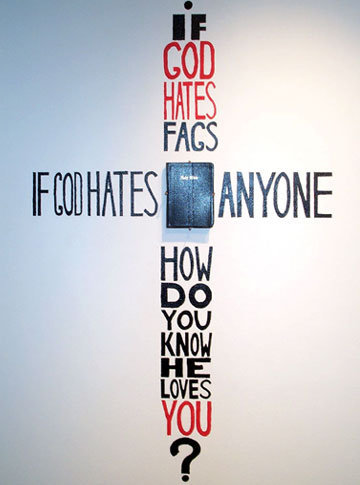It's a blustery Sunday afternoon here in the Emerald Valley. Typically on days like this, I'm spending it watching scary movies while I feed my Tarantulas and Snakes. It's relaxing (for me) to defrost some pre-frozen rats and feed them to my anxious and hungry reptiles. Seeing my tarantulas ball up crickets into a mass, dance around them while weaving a web to hold them together, and then see them sucking on the mass until it turns into a dry ball of insect parts. Adorable little vampires they are. It's unusual, BUT NATURAL, behavior for my pets to feed this way. I just happen to be blessed with the ability to appreciate the stranger things in life that God has made.
Maybe I'm unique.
Right now, I have the movie Slither on the tube while I sip a Cup O Noodles. This movie is pure gross out splatter fun and zombies are just a footnote of weirdness this movie offers. Creeping parasites that crawl into your mouth, undulating near humanoid creatures merging together, and enough slime to completely deplete the Canadian Film prop makers for an entire year (true story) of prop slime. But this movie had me thinking about the classics that it pays homage to, and in particular reminded me of the Night of the Creeps movie. Maybe it's the rather phallic slugs? ...And I wondered why Christians seem to loathe horror so much.
Ever since the "Satanic Panic" era of the early 80's, Protestant American Christians have been on a rampage to stamp out all things evil. If it doesn't look pure, sound pure, or give off a pure vibe, it is therefore evil and must be eradicated. We judge this, not a biblical standpoint, but on our own personal aesthetics. "I don't like it, it makes me uncomfortable, therefore it must be evil." I've always wondered, in almost 27 years of being a Christian, when has our faith EVER been about being "comfortable"? When has anything about our faith been about "being pure"?
For those unfamiliar with the Satanic Panic era, in 1973 a "Christian Comedian" named Mike Warnke wrote a book called The Satan Seller. In it, he reported an "autobiographical account" of his induction into the ratified "Church of Satan" and how the organization practices all manner of human sacrifice and sexual abuse on people; in particular on children. The book caught on like wildfire without ANY attempt to actually investigate Mr. Warnke's claims. Cornerstone Magazine wrote an expose on the man and his fabrications. However, in his new found fame and zeal, Warnke even became a consultant for law enforcement on how to find and stop "Satanic Ritual Abusers".
In 1992, the Federal Bureau of Investigations actually launched a full scale investigation into Warnke's and other religious leaders claims that Satanic leaders were ritually abusing people in secret meetings, killing them, and further were using Rock Music as well as Horror Movies and Role Play Games to influence young people into their covens.
And the FBI indeed concluded that Mr. Warnke's entire body of work, was complete and total bupkiss. He made millions off of it.
Shamed and exposed, Warnke went into hiding and didn't come out to speak again until years later.
Still, his legacy of lies lives on. Christianity doesn't have a good history of researching peoples claims. I think it's high time we change that. One of those items is the nature of Cautionary tales and horror elements in our own faith.

(Christian Deathrock act circa 2001, One of my favorite songs of theirs is this)
Of the many targets that the moral brigade saw fit to try and stamp out, was the concept of horror movies. Prior to the Satanic Panic era, horror movies were regarded as somewhat Schlocky and fun ways to entertain an audience. The 50's and 60's took a lot with the Universal Horror monsters. Bela Lugosi's portrayal of Dracula and Borris Karloff as Frankenstein's Creation (Frankenstein was the doctor, and true monster of the story) became some of the founding icons of American Horror.
However, those stories draw from even older sources. True, Dracula we can easily trace to Bram Stoker's novel and Frankenstein to the amazing Mary Shelley's writings. But the real stories they delve into are drawn from the Cautionary Tales of old. Grimm's Fairy Tales that Grandmothers would tell their grandchildren around the old campfires. Grisly yarns that were meant to instill a lesson and to entertain on cold winters nights. We romanticise these tails in sanitized and cute dressed up versions today in American Animation, but if you dug deeper into the stories; the results could turn your hair white.

(Lips as red as blood)
In the original Snow White for example, the huntsmen is ordered to kill the girl in the woods and bring back her heart in a box for the queen to eat. Snow White does eat the poison apple, but rather than sleep, she falls dead. The prince doesn't kiss her, in fact it's his servants moving her glass coffin that dislodges the poison apple from her throat and only then does she breathe. She in fact kills the evil jealous queen with iron shoes that were heated to red hot and strapped to her feet and she's told to dance until she dies. Source here:
What was the moral of the story? The Cautionary tale that the adults wanted to instill into their children with such graphic disgust? Don't let pride and vanity consume you...
Modern American Christianity has sanitized these tales because again, if it upsets our comfort level, it's evil...
The best horror stories are in and of themselves Cautionary Tales. They through all their scares and frights and grim horror have a moral story that they want to instill within you.

You'd think that a series of movies with the cautionary moral tale of "Don't have premarital sex, Don't smoke pot, Don't listen to loud music, or a bad man will hunt you down and destroy you" would have gone over like Gangbusters in the Christian scene.
One of my favorite horror movie directors and producers is Tobe Hooper. I love the fact that the man's OVER THE TOP horror direction takes you from simple momentary fright to gripping your pillow tight in just a few frames. What I have always found interesting in each of his moves (that I've seen so far) is that the victims of the horror mess almost always begin their journey into nightmares after smoking a joint. Pot... In this instance... Becomes the cautionary tale. In Poltergeist, the family goes on a wild and frightening rampage through all manner of ghostly activities AFTER the parents light up a joint. In Funhouse, the first victim is killed after smoking a joint. Ergo, don't do drugs or bad things will happen to you.
One of the more obscure morality references I find stems from my all time FAVORITE horror movie, John Carpenter's remake of The Thing. It's a dramatic and refreshed retelling of the old story "Halt, Who Goes There". A short story where a research group is confronted by an Alien Being who consumes, then replaces you. You never, in the original story or in the movie remake, know who actually is The Thing. This alien creature has travelled the stars and consumed all manner of different creatures and in its attempt at replacing you, often takes on the aspects of others. What's the moral you ask? Don't talk to commies!
Now, growing up in the 80's post "Communist Police Action", you'd have thought that a movie whose moral agenda was to warn you to avoid Communists to be a big hit. You'd think that Christians wanting to keep kids in line wouldn't hesitate to take them to a movie like this.
You'd think wrong...
Instead, almost all horror movies are deemed uncomfortable and aesthetically displeasing and therefore "Satanic"...
We patiently or patently ignore the horror elements of our own scripture. Cane for example kills Abel. (Genesis Chapter 4) A fairly common Bible story.
And we instead try to modernize our own scripture into cute happy stories we don't have to be challenged by.

In this new vision, Cain didn't kill Abel, he just spanked him for "Looking better in front of God." A couple paddle whacks and they were still buds.
Scripture is meant to challenge us. It's meant to take us outside our comfort zone.
For example, when Jesus touched the lepers and healed them, do you think it was just a "minor case" of leprosy?

(Is there really a "minor case" of leprosy?)
(As an aside note, reality is FAR more horrific than any movie....)
Touching a leper isn't SAFE because leprosy is contagious! It's a disease that in advanced stages causes all types of horrific symptoms. And yet, the person who we are told to live up to as an example, does some pretty unsafe and uncomfortable things. He touches, hugs, embraces things we reject. We are challenged to face uncomfortable situations.
Horror, challenges us to face uncomfortable situations. It is often that momentary brush with death that makes feel alive again.
For the same reason we skydive, ride roller coasters, go bungee jumping, its a brush with death that excites us. We get that much closer to death while still breathing and we relish it. I know we relish it because there wouldn't be so many Hillsong videos set to skydiving or roller coasters.

(Personally I think its a waste of a perfectly good plane)
Horror, unlike Skydiving or Bungee Jumping, doesn't require me to ACTUALLY risk my life to attempt. I merely put in a DVD, pop some popcorn, and kick back while the show plays on.

What I support, is the notion of a movie that gives us something just momentarily frightening to enjoy. Something that challenges our comfort zone and makes us grateful to be alive. What I enjoy are cautionary tales that give us a good moral at the end.
What I don't support is the new genre known as Torture Porn.

Torture Porn is defined as a new genre of movie depicting faked graphic depictions of painful torture for shock value.
Movies in the Torture Porn genre have very little plot and even less of a moral implication short of "Don't leave your house or a bad man will torture you." The depictions of torture just keep getting more and more silly with each new release and there isn't anything I find genuinely frightening about Torture Porn when reality is far more grotesque. For example, the stories of Colonia Dignidad in Chile. German expatriates following a fanatic cult leader who deems himself to be the sole patriarch, all wives and children belong to and are fathered through himself alone. The graphic tortures he'd inflict on parishioners to keep children young and sexually virile are enough to turn any stomach. But what's worse... The government of Chile would contract through this cult to torture it's political prisoners. You can read all about it here.
It is very interesting to me that Christians who deny horror on the basis thinking that it is torture porn but we extol the virtues of The Passion of the Christ, depicting a man tortured horrifically through the entire film and we claim its both "Biblically Accurate" and "Miraculous".
We show it on endless repeat to kids, little children, this graphic portrayal of disgusting torture. Yet we claim that this rather unbiblical farce of a movie produced and directed by a man who believes he is above the Pope and we call it "wholesome".
Not to diminish the sacrifice that Jesus gave on the Cross. That's one of the key Cornerstones of Christian faith. Rather, I would have us examine any film we are showing kids and if we determine that torture is not something kids should be shown... Maybe we shouldn't show it with a veil of "Godliness" over it either.
My conclusion I draw is this.
Christian's are an interesting lot of people. NO, we are not perfect people. If perfection were attainable then we wouldn't need the cross. However, we need to take a moment to assess what we look at as uncomfortable and challenging and recognize that not everything that fits outside our comfort zone is evil. Sometimes, it's meant to teach us a lesson and sometimes its meant to sharpen our wits. Sometimes, its meant just to entertain.
We, as Christians, are quick to defend books like Twilight and 50 Shades of Grey calling it "Romantic"; while we fail to realize that it really isn't. We are quick to judge and lump horror into torture, but fail to recognize the evils we ourselves are extolling into the daylight hours. Maybe it's time we try something out, just for fun, and watch something a little scary to remind us why we are still alive.
Slither is drawing to an end, so I'll part with this.
Music in my head:
Man Behind the Mask by Alice Cooper (A Christian)




















